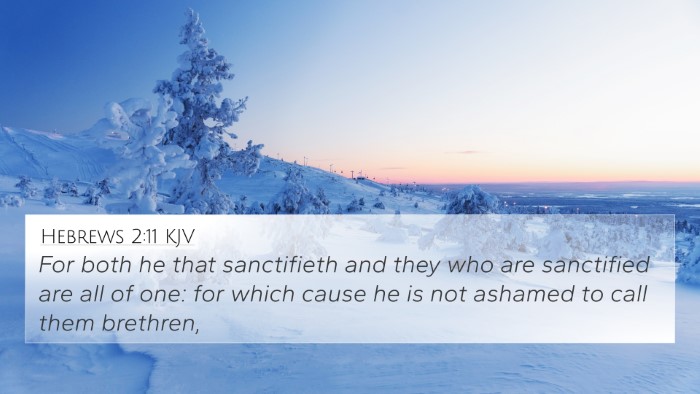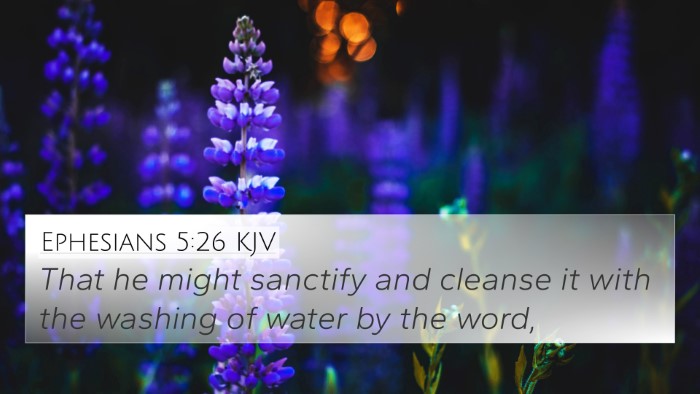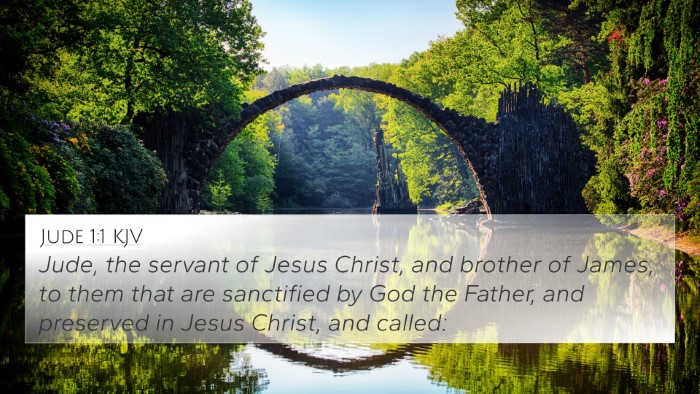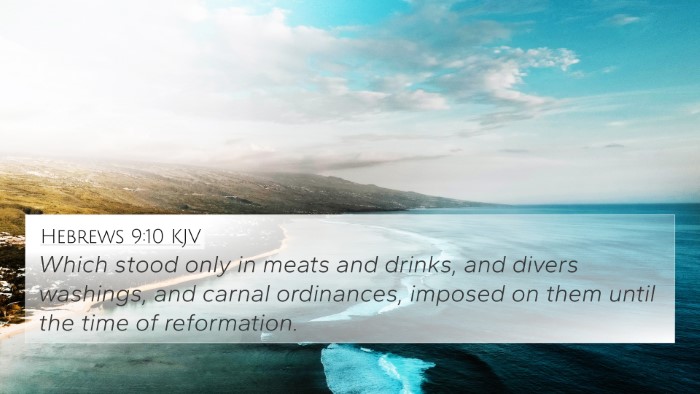Understanding Hebrews 10:14
Hebrews 10:14 states:
"For by one offering he hath perfected for ever them that are sanctified."
This verse highlights the profound significance of Christ's sacrifice and serves as a cornerstone for understanding the theme of atonement within Christian theology.
Commentary Insights
Theologians and biblical scholars have offered various interpretations of this verse. The following insights are compiled from renowned public domain commentaries.
Matthew Henry's Commentary
One Offering: Matthew Henry emphasizes the sufficiency of Christ's sacrifice. Unlike the ongoing animal sacrifices of the Old Testament, Christ's offering is singular and complete, indicating that the work of salvation is perfected through Him.
Perfected Forever: The phrase "perfected forever" indicates that believers are fully made right with God. This reflects a permanence in sanctification that is not dependent on continual offerings, but rather on Christ's once-for-all act.
Albert Barnes' Notes on the Bible
Sanctification: Barnes explains that the term 'sanctified' refers to those who are set apart by God for His purposes. This verse assures those who are sanctified that they are perfected through Christ's sacrifice.
Divine Assurance: Barnes also highlights the assurance given to believers; they are not merely forgiven but are viewed as perfected before God, which instills peace and confidence in their faith journey.
Adam Clarke's Commentary
Effectiveness of Christ's Sacrifice: Clarke discusses how the offering of Christ is eternally effective, affirming that no further sacrifices are needed. This positions Christ as the ultimate High Priest, enabling believers to come boldly before God.
Human Effort vs. Divine Grace: Clarke reflects on the contrast between human efforts to attain perfection through law and the grace offered through Christ. This emphasizes the theme of grace as central to salvation.
Cross-References to Hebrews 10:14
To deepen the understanding of Hebrews 10:14, here are some key Bible verses that are cross-referenced:
- Romans 8:1: "There is therefore now no condemnation to them which are in Christ Jesus." - This verse reinforces the idea of perfection through Christ.
- Hebrews 10:10: "By the which will we are sanctified through the offering of the body of Jesus Christ once for all." - Directly connects to the theme of Christ's one offering.
- 1 Peter 3:18: "For Christ also hath once suffered for sins, the just for the unjust, that he might bring us to God." - Similar emphasis on Christ’s singular sacrifice.
- Ephesians 5:2: "...and walk in love, as Christ also hath loved us, and hath given himself for us an offering and a sacrifice to God for a sweet-smelling savour." - Highlights Christ's sacrificial love.
- Colossians 2:10: "And ye are complete in him, which is the head of all principality and power." - Affirms the completeness we have in Christ.
- Hebrews 7:27: "Who needeth not daily, as those high priests, to offer up sacrifice, first for his own sins, and then for the people's: for this he did once, when he offered up himself." - Discusses the finality of Christ's sacrifice.
- John 19:30: "When Jesus therefore had received the vinegar, he said, It is finished: and he bowed his head, and gave up the ghost." - Confirms the completion of His work on the cross.
- 2 Corinthians 5:21: "For he hath made him to be sin for us, who knew no sin; that we might be made the righteousness of God in him." - Illustrates the exchange that takes place through Christ’s sacrifice.
- Romans 5:1: "Therefore being justified by faith, we have peace with God through our Lord Jesus Christ." - Emphasizes justification and peace resulting from Christ's offering.
Thematic Connections
This verse connects deeply with several themes in Scripture, including:
- Atonement: Throughout the Bible, the concept of the atoning sacrifice is central; Hebrews 10:14 encapsulates this theme succinctly.
- Sanctification: The theme of being set apart for God's use underlines the sanctifying power of Christ’s sacrifice.
- Perfection in Christ: Many verses affirm that through Christ, believers achieve perfection, a key doctrine in New Testament theology.
- Grace vs. Law: The contrast between the Old Covenant law and the New Covenant grace is essential for understanding this verse.
Conclusion
Hebrews 10:14 serves as a profound affirmation of the believer's standing before God due to Christ’s one-time offering. By understanding its theological implications and cross-references, readers can appreciate the transformative power of this verse in the context of Christian faith. It invites believers to explore their identity in Christ, grounded in grace and assurance of salvation.
















